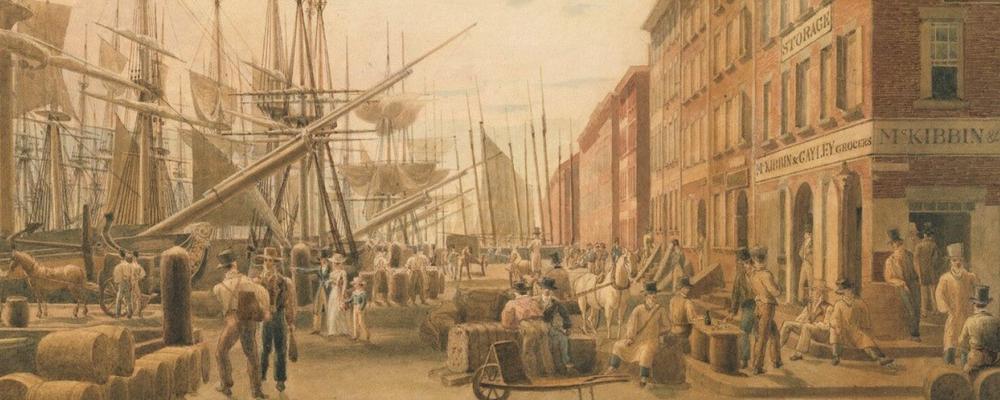Tension when colonial merchants expanded maritime trade beyond the British Empire
During the 18th century, demand for American goods increased. Merchants at the colonial ports of Boston, New York, and Philadelphia developed large, global networks of maritime trade and exchange and then expanded their mercantile networks well beyond the confines of the British Empire. This created tension between the merchants and the British Empire, which wanted to limit American trade to within the borders of the British Empire, that formed the roots of the American Revolution.
About the book: The title of the book is Colonial Ports, Global Trade, and the Roots of the American Revolution (1700 — 1776) and it is based on thousands of archival documents and revised compilations of existing datasets to create an analytical narrative of 18th century colonial America.
Link to book: https://brill.com/display/title/64597?rskey=B9BZyD&result=4
Mercantilism is a nationalist economic policy that is designed to maximize the exports and minimize the imports for an economy. In other words, it seeks to maximize the accumulation of resources within the country and use those resources for one-sided trade. It promotes imperialism, colonialism, protectionism, currency manipulation, and tariffs and subsidies on traded goods to achieve that goal.


